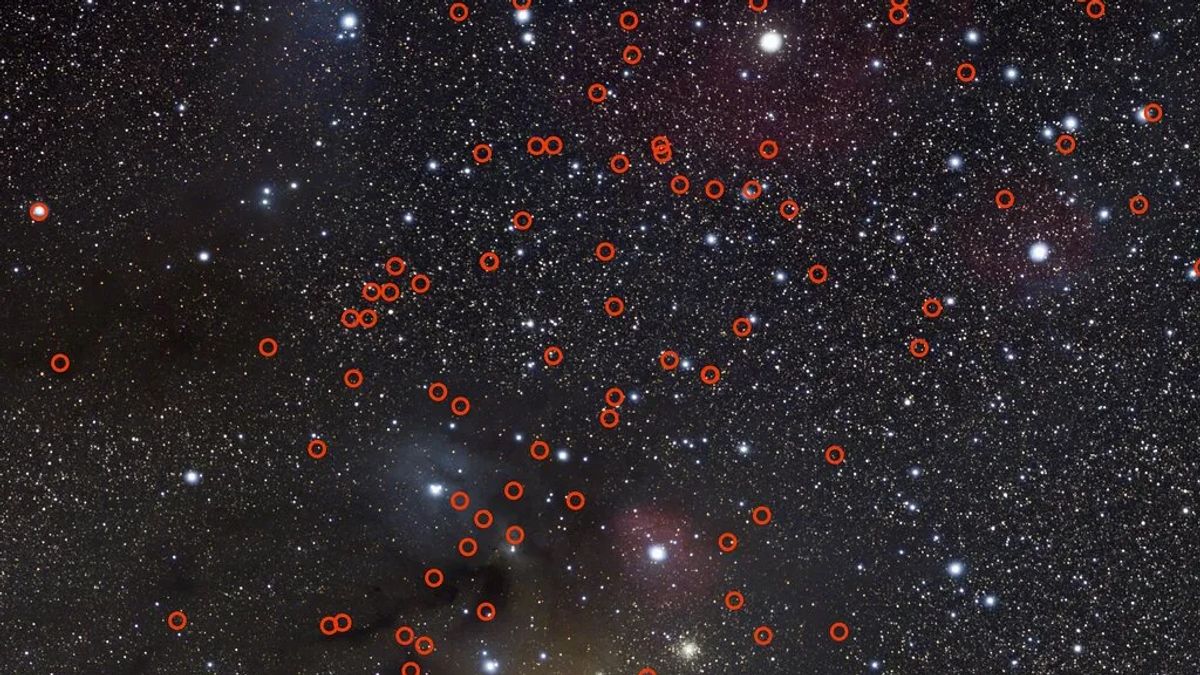JAKARTA - As many as 70 new planets have been discovered by astronomers, but they call them evil planets because they are free-floating and do not orbit their stars.
Uniquely, although this planet is not coupled with its star, they are alone in the depths of space. The number 70 is a temporary prediction, there may be more planets that will be seen throughout the Milky Way galaxy.
This planet is the largest group of cosmic nomads ever discovered. Located in the constellations Scorpius and Ophiuchus, the planets can be seen using a series of telescopes on land and in space.
Usually, planets like these are difficult to image because they are not close to any stars to make them visible. However, with more than 20 years of data collected by the European Southern Observatory (ESO) telescope, the European Space Agency's Gaia satellite, and many others were able to get a hold of the stray planets.
Núria Miret-Roig, astronomer at the Laboratoire d'Astrophysique de Bordeaux and his team also used the tool to capture faint heat signatures emitted from planets that formed in the last few million years.
Despite the record-breaking observations, their findings suggest that a much more sinister planet is waiting to be seen.
"There may be several billion of these giant free-floating planets roaming freely in the Milky Way without a parent star," said astronomer at the Laboratoire d'Astrophysique de Bordeaux, France and study co-author, Hervé Bouy. .
The findings, which have been published in Nature Astronomy, are a step towards figuring out how these mysterious objects formed in outer space. It is possible that the rogue planets originally formed around stars before being violently ejected from their Solar System.
It is possible they could have formed from the collapse of a gas cloud too small to lead to the birth of a new star. Astronomers are now awaiting completion of ESO's Extremely Large Telescope (ELT).
ELT itself is a giant observatory that will play an important role in finding more information about the new planets. Lastly, Bouy stated that the ELT is set to begin observations by the end of the decade.
The English, Chinese, Japanese, Arabic, and French versions are automatically generated by the AI. So there may still be inaccuracies in translating, please always see Indonesian as our main language. (system supported by DigitalSiber.id)













